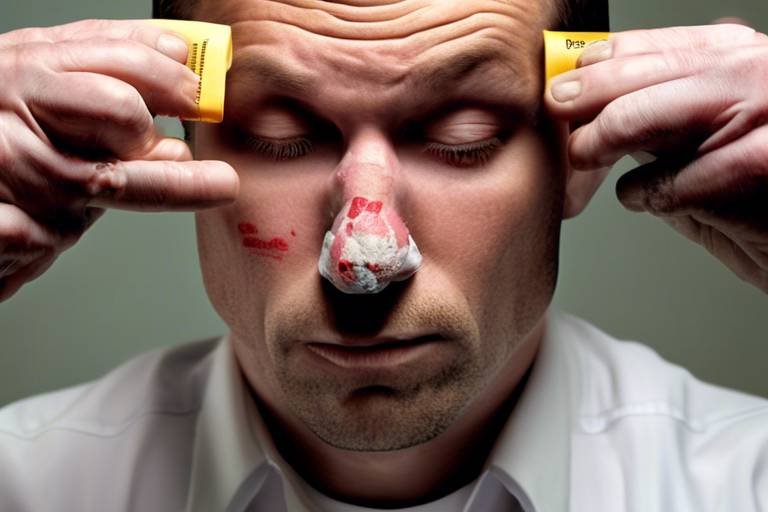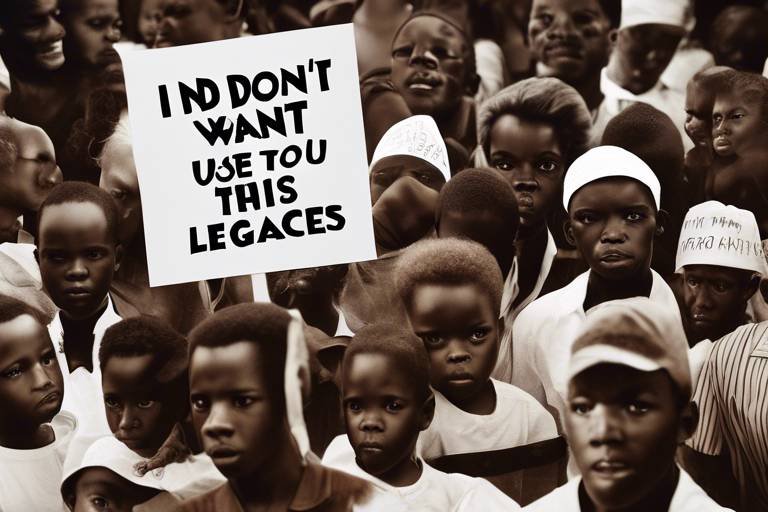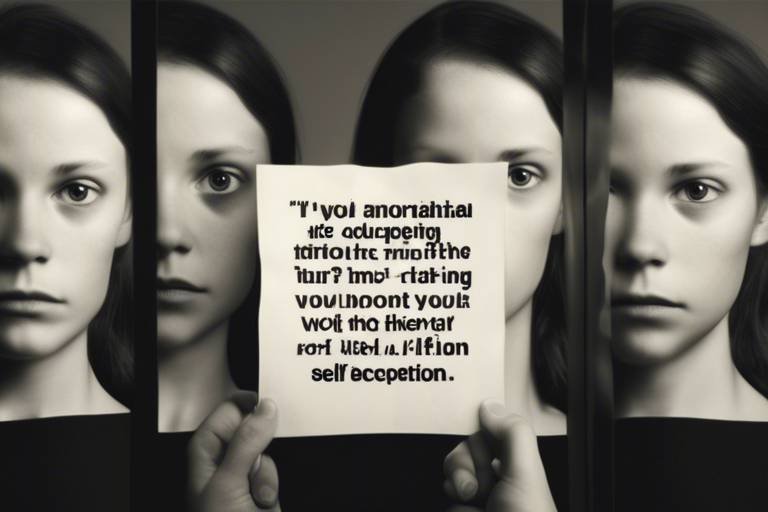The Morality of the War on Drugs
The War on Drugs, a term that evokes a myriad of emotions and opinions, has been a contentious issue for decades. It is not merely a political campaign but a complex tapestry woven with threads of morality, ethics, and societal impact. As we delve into the ethical implications of this ongoing battle, we must consider how it shapes our justice system, affects communities, and influences public health. The question arises: is this war truly justifiable, or does it perpetuate more harm than good?
At its core, the War on Drugs is framed as a necessary measure to protect society from the perils of drug abuse and trafficking. However, as we examine its consequences, we must ask ourselves whether the strategies employed are genuinely achieving their intended goals. The societal impact is profound, with millions of lives affected by policies that often prioritize punishment over rehabilitation. This brings us to the ethical considerations surrounding these policies—are they morally sound, or do they reflect a failure to address the root causes of drug use and addiction?
Throughout history, the War on Drugs has evolved, yet its foundational principles remain largely unchanged. The initial push for stricter drug laws was fueled by a desire to combat addiction and crime, but the reality has been a cycle of incarceration and stigmatization. The question we must confront is whether this approach is effective in fostering a healthier society. Are we truly making strides toward a drug-free world, or are we merely masking the symptoms of a deeper societal issue?
As we navigate this complex landscape, it becomes essential to explore various perspectives on the morality of the War on Drugs. From the utilitarian viewpoint, which seeks the greatest good for the greatest number, to deontological ethics that emphasize the morality of actions themselves, the arguments are multifaceted. Each framework offers unique insights into the consequences of drug prohibition, challenging us to rethink our assumptions and consider alternative approaches.
In conclusion, the morality of the War on Drugs is a topic that demands our attention and critical analysis. As we continue to grapple with its implications, we must remain open to discussions about potential alternatives that prioritize compassion, public health, and social justice. Only then can we hope to forge a path toward a more equitable and effective approach to drug policy.
- What is the War on Drugs? The War on Drugs refers to a campaign led by the government to reduce illegal drug trade and use through strict laws and enforcement.
- Why is the War on Drugs considered controversial? It is controversial due to its social, economic, and ethical implications, particularly regarding its impact on marginalized communities and public health.
- What are some alternatives to the War on Drugs? Alternatives include harm reduction strategies, decriminalization of certain substances, and focusing on treatment rather than punishment.
- How does the War on Drugs affect families? The policies can lead to incarceration of family members, financial strain, and social stigma, which negatively impact children and communities.
- What role does racial disparity play in drug enforcement? Racial disparities in arrests and sentencing highlight systemic biases in the justice system, raising questions about fairness and equality.

The Historical Context
The War on Drugs, a term that has become synonymous with harsh policies and societal division, has roots that stretch back to the early 20th century. Its inception can be traced to a confluence of social, political, and economic factors that shaped public perception of drug use and addiction. Initially, substances like opium, cocaine, and marijuana were not viewed through the lens of criminality; rather, they were often utilized in medicine and recreationally without significant societal concern.
However, as the 1900s progressed, shifts in societal attitudes began to emerge. The 1914 Harrison Narcotics Tax Act marked a pivotal moment, as it imposed strict regulations on the use of opiates and cocaine, effectively criminalizing their consumption. This act was not just a legal change; it signified a growing moral panic surrounding drug use, fueled by racial and social prejudices. For instance, the portrayal of drug users in the media often linked addiction to marginalized communities, fostering an image of danger and moral decay.
Fast forward to the 1980s, and we see the War on Drugs intensify under President Ronald Reagan, who declared drug abuse a national crisis. This era introduced policies that prioritized law enforcement over public health, leading to a surge in incarceration rates. The infamous Anti-Drug Abuse Act of 1986 established mandatory minimum sentences for drug offenses, which disproportionately affected low-income and minority populations. The moral implications of these policies are profound, as they not only criminalized addiction but also perpetuated cycles of poverty and disenfranchisement.
To understand the historical context of the War on Drugs, it’s essential to recognize the **significant societal impacts** it has had. Here are a few key points to consider:
- Incarceration Rates: The U.S. has one of the highest incarceration rates in the world, largely due to drug-related offenses.
- Racial Disparities: The enforcement of drug laws has disproportionately targeted people of color, leading to systemic inequalities.
- Public Health Crisis: Instead of reducing drug use, punitive measures have often exacerbated addiction and related health issues.
As we look back, it becomes clear that the decisions made in the past have shaped the current landscape of drug policy and societal attitudes. Understanding this history is crucial for anyone seeking to engage in discussions about the morality of the War on Drugs today. It raises fundamental questions about our approach to addiction and whether a punitive model can ever truly solve the complex issues surrounding drug use in society.
What is the War on Drugs?
The War on Drugs refers to the U.S. government's campaign to prohibit illegal drug use, distribution, and trade, which has involved strict law enforcement and punitive measures since the early 20th century.
How has the War on Drugs impacted society?
The War on Drugs has led to increased incarceration rates, particularly among marginalized communities, and has contributed to a public health crisis rather than mitigating drug use.
What are some alternatives to the current drug policies?
Alternatives include harm reduction strategies, which focus on minimizing the negative consequences of drug use, and decriminalization efforts that shift the focus from punishment to treatment and support.

Ethical Perspectives
When diving into the morality of the War on Drugs, it's crucial to consider various ethical frameworks that shape our understanding of this complex issue. Each perspective offers a unique lens through which we can analyze the implications of drug prohibition, allowing us to question not only the effectiveness of current policies but also their inherent morality. Among these frameworks, utilitarianism and deontology stand out as two of the most significant. They provide contrasting viewpoints that can help us navigate the murky waters of drug policy and its societal impacts.
Utilitarianism, at its core, seeks to maximize happiness and reduce suffering for the greatest number of people. This raises a compelling question: does the War on Drugs actually achieve this goal? While proponents argue that strict drug laws deter use and protect society, critics point out that the reality is often quite different. For instance, the rise in addiction rates and the spread of diseases like HIV among drug users can be seen as signs that current policies may do more harm than good. The following table outlines some key statistics that illustrate these public health concerns:
| Statistic | Impact of War on Drugs |
|---|---|
| Addiction Rates | Increased by 30% over the last decade |
| HIV Infection Rates | Spike in cases among intravenous drug users |
| Overdose Deaths | Record high levels reported annually |
Moreover, the economic costs associated with the War on Drugs are staggering. Billions of dollars are spent each year on enforcement, incarceration, and lost productivity, which raises the question: could these resources be better allocated? If we shifted our focus from punitive measures to treatment and prevention, might we see a greater overall benefit for society? These financial considerations are not just numbers on a balance sheet; they represent real lives and communities affected by drug policies.
On the other hand, we have deontological ethics, which emphasizes the morality of actions themselves rather than their outcomes. This perspective challenges us to consider whether it is justifiable to impose harsh penalties on individuals for drug use, regardless of the potential societal benefits. Is it morally right to criminalize addiction, which is often a disease rather than a choice? Many argue that punitive measures fail to recognize the complexity of addiction and instead perpetuate a cycle of harm.
In conclusion, the ethical perspectives surrounding the War on Drugs reveal a landscape filled with moral dilemmas. By examining these viewpoints, we can begin to understand the broader implications of our drug policies. Are we truly acting in the best interests of society, or are we simply perpetuating a system that causes more harm than good? The answers may not be straightforward, but they are certainly worth exploring.
- What is the main goal of the War on Drugs? The primary goal is to reduce drug use and its associated harms through strict enforcement and criminalization.
- How does utilitarianism view the War on Drugs? Utilitarianism questions whether the War on Drugs achieves the greatest good for the greatest number, often concluding that it leads to more harm than benefit.
- What are the economic implications of the War on Drugs? The War on Drugs incurs significant costs related to enforcement and incarceration, raising questions about resource allocation and potential alternatives.
- Why is deontological ethics important in this discussion? Deontological ethics focuses on the morality of actions, prompting a reevaluation of whether it is justifiable to criminalize drug use.

Utilitarian Arguments
Utilitarianism, a philosophical framework that evaluates actions based on their outcomes, raises critical questions about the effectiveness of the War on Drugs. At its core, utilitarianism asks: does this policy create the greatest good for the greatest number of people? In the case of drug prohibition, many argue that the answer is a resounding no. Instead of achieving its intended goals, the War on Drugs often leads to a plethora of unintended consequences that may cause more harm than good.
For instance, consider the increasing rates of addiction and overdose deaths in many countries. The strict enforcement of drug laws does not eliminate drug use; rather, it pushes users into the shadows, making it harder for them to seek help. This situation can be likened to trying to extinguish a fire by throwing gasoline on it—rather than solving the problem, it exacerbates it. As a result, communities suffer, families are torn apart, and public health deteriorates.
Furthermore, one must examine the economic implications of the War on Drugs. The financial resources allocated to enforcement, incarceration, and the criminal justice system could be redirected toward more constructive measures, such as education and rehabilitation. A recent study estimated that the annual cost of the War on Drugs in the United States exceeds $47 billion. This staggering figure raises the question: could these funds be better utilized to support public health initiatives?
Additionally, the societal stigma attached to drug users often prevents individuals from accessing necessary care. For example, a person struggling with addiction may avoid seeking treatment for fear of legal repercussions or societal judgment. This avoidance not only affects the individual but also places a burden on healthcare systems, ultimately leading to higher costs and more significant public health challenges.
To illustrate the utilitarian perspective further, let’s look at some statistics regarding drug-related deaths:
| Year | Drug Overdose Deaths | Estimated Cost to Society |
|---|---|---|
| 2018 | 67,367 | $1 trillion |
| 2019 | 70,630 | $1.2 trillion |
| 2020 | 93,331 | $1.5 trillion |
This table highlights a disturbing trend: as drug overdose deaths increase, so do the associated costs to society. From a utilitarian viewpoint, the War on Drugs seems to be failing in its primary objective—reducing harm and promoting well-being.
In summary, the utilitarian arguments against the War on Drugs emphasize that the policy does not produce the greatest good for the greatest number. Instead, it perpetuates cycles of addiction, economic burden, and social stigma. As we reflect on these implications, it becomes increasingly clear that a reevaluation of our approach to drug policy is not just necessary but morally imperative.
- What is utilitarianism? Utilitarianism is a philosophical framework that evaluates the morality of actions based on their outcomes, aiming for the greatest good for the greatest number.
- How does the War on Drugs relate to utilitarianism? Critics argue that the War on Drugs fails to achieve the greatest good, as it often leads to increased addiction rates, economic costs, and societal stigma.
- What are the economic costs of the War on Drugs? The War on Drugs incurs significant financial burdens, estimated at over $47 billion annually in the United States, impacting public health and safety.
- What alternatives exist to the War on Drugs? Alternatives such as harm reduction and decriminalization focus on public health and reducing harm rather than punitive measures.
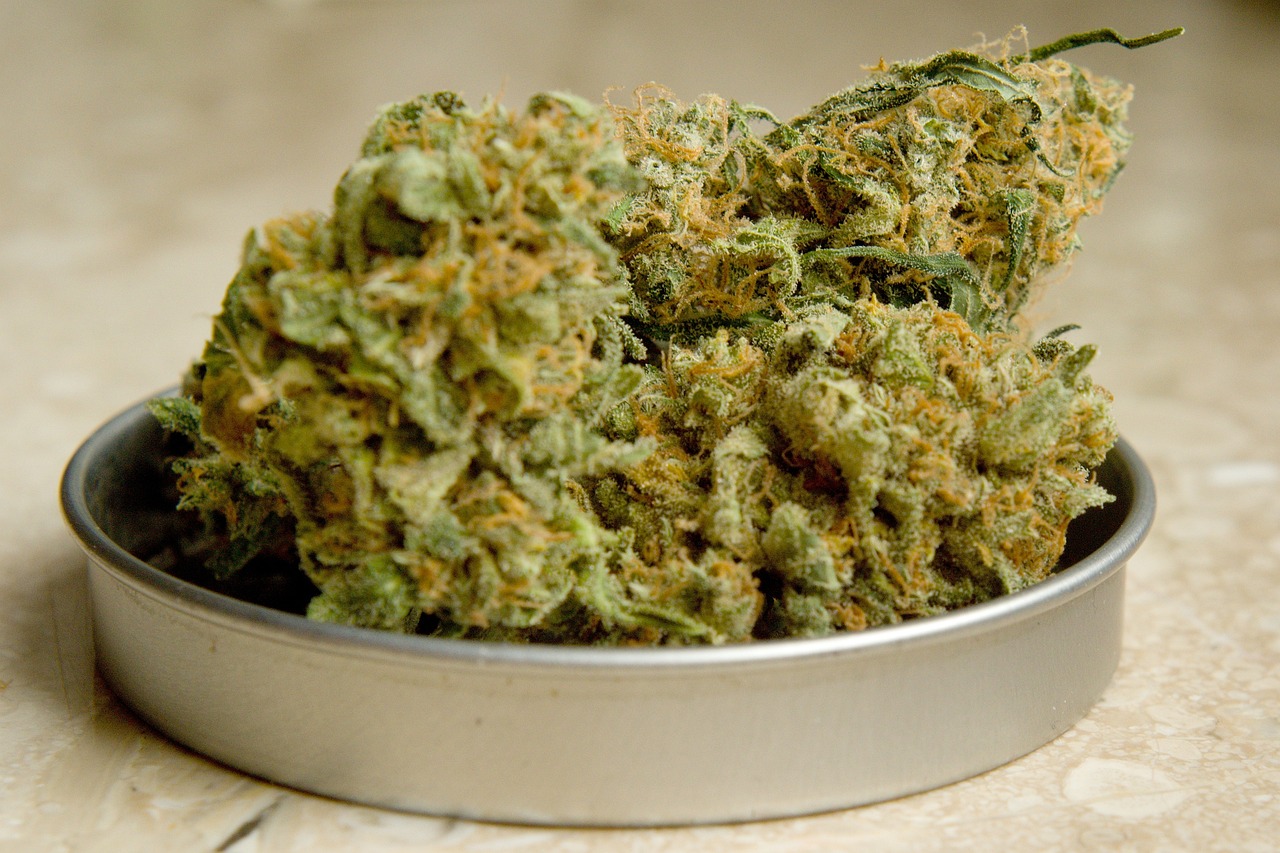
Public Health Consequences
The War on Drugs has profound implications for public health, often leading to a paradox where the very policies intended to protect society can end up causing more harm than good. When we think about drug prohibition, we might envision a world where addiction rates plummet and communities thrive. However, the reality paints a much darker picture. Instead of achieving its intended goals, the War on Drugs has contributed to rising addiction rates and the spread of infectious diseases, highlighting a critical disconnect between policy and health outcomes.
One of the most alarming consequences of drug prohibition is the stigma surrounding addiction. Individuals struggling with substance use disorders often face **social ostracism**, which discourages them from seeking help. This stigma can lead to a cycle of shame and isolation, where those in need of treatment avoid medical care for fear of judgment. Consequently, rather than reducing drug use, prohibition often exacerbates the problem, pushing individuals into the shadows where they may resort to more dangerous behaviors. For instance, sharing needles among intravenous drug users significantly increases the risk of HIV and Hepatitis C transmission, creating public health crises that ripple through communities.
Moreover, the focus on punitive measures rather than treatment has resulted in a healthcare system ill-equipped to address the needs of those affected by drug use. Instead of investing in rehabilitation programs, many resources are funneled into law enforcement and incarceration. This misallocation of funds not only fails to resolve the underlying issues of addiction but also places an **immense burden** on public health systems. According to a report by the National Institute on Drug Abuse, the economic burden of substance abuse in the U.S. is staggering, amounting to over $600 billion annually when considering healthcare costs, lost productivity, and crime-related expenses.
| Public Health Impacts | Statistics |
|---|---|
| Increased HIV Rates | Over 1.2 million people in the U.S. are living with HIV, with a significant portion linked to intravenous drug use. |
| Opioid Overdose Deaths | In 2021, over 80,000 opioid-related deaths were reported in the U.S., a direct consequence of drug prohibition policies. |
| Access to Treatment | Only 10% of individuals with substance use disorders receive treatment, largely due to stigma and lack of resources. |
In light of these consequences, it becomes crucial to reevaluate our approach to drug policy. What if we shifted our focus from punishment to prevention and treatment? By implementing harm reduction strategies, we can address the root causes of addiction and improve public health outcomes. Programs that provide clean needles, safe consumption spaces, and access to mental health services have shown promise in reducing health risks associated with drug use. These initiatives not only save lives but also foster a more compassionate understanding of addiction as a health issue rather than a criminal one.
Ultimately, the public health consequences of the War on Drugs are a stark reminder that our current policies may be doing more harm than good. As we navigate this complex issue, it is essential to prioritize the health and well-being of individuals and communities. By embracing a more humane and evidence-based approach, we can begin to heal the wounds inflicted by decades of ineffective drug policies.
- What is the War on Drugs? The War on Drugs refers to the U.S. government's campaign to reduce illegal drug trade and use, primarily through law enforcement and punitive measures.
- How does drug prohibition affect public health? Drug prohibition can lead to increased addiction rates, the spread of diseases, and a lack of access to treatment for those struggling with substance use disorders.
- What are harm reduction strategies? Harm reduction strategies are public health policies that aim to reduce the negative consequences of drug use without necessarily eliminating drug use itself, such as providing clean needles and safe consumption spaces.
- Why is stigma a problem in addressing addiction? Stigma surrounding addiction can prevent individuals from seeking help, leading to worsening health outcomes and perpetuating cycles of addiction and isolation.

Economic Costs
The financial implications of the War on Drugs are staggering and multifaceted, touching nearly every aspect of society. When we talk about the , we’re not just referring to the money spent on law enforcement or incarceration; we’re looking at a broader picture that includes lost productivity, healthcare expenses, and the ripple effects on communities. Imagine pouring billions into a leaky bucket—no matter how much you pour in, it just keeps draining away. That’s essentially what the War on Drugs has become.
To give you a clearer picture, let’s break down some of these costs:
| Cost Category | Estimated Annual Cost (USD) |
|---|---|
| Law Enforcement | $50 billion |
| Incarceration | $80 billion |
| Healthcare Costs | $20 billion |
| Lost Productivity | $100 billion |
| Total Estimated Costs | $250 billion |
These figures are not just numbers; they represent real people and communities that suffer the consequences of stringent drug laws. When we allocate such vast resources to enforcement and incarceration, we neglect other crucial areas like education, mental health services, and community development. This misallocation raises an important question: What could we achieve if we redirected these funds toward prevention and rehabilitation instead?
Moreover, the economic burden extends beyond the immediate costs. Families are often left to pick up the pieces when a loved one is incarcerated due to drug-related offenses. The loss of income and the emotional toll can lead to a cycle of poverty that is hard to escape. Think about it: when a parent is imprisoned, the entire family unit is affected, leading to increased reliance on social services, which further strains public resources.
In addition to these direct costs, there are also opportunity costs to consider. The War on Drugs has created a system where potential taxpayers—those who might contribute positively to society—are instead funneled into a cycle of crime and punishment. This not only deprives the economy of potential growth but also perpetuates the very issues we aim to solve.
As we delve deeper into these economic costs, it becomes increasingly clear that the current approach is not just morally questionable; it’s financially unsustainable. The question remains: Is it time for a paradigm shift? Exploring alternatives like harm reduction and decriminalization could save not only money but also lives, making it a moral imperative to rethink our strategies.
- What are the main economic costs associated with the War on Drugs?
The primary costs include law enforcement, incarceration, healthcare, and lost productivity, which collectively amount to around $250 billion annually. - How does the War on Drugs affect families?
Families often face financial hardships due to the incarceration of a loved one, leading to cycles of poverty and reliance on social services. - What are potential alternatives to the current drug policies?
Alternatives include harm reduction strategies and decriminalization, which focus on public health rather than punitive measures.

Deontological Considerations
When we dive into the realm of deontological ethics, we find ourselves grappling with the morality of actions rather than their outcomes. This perspective asks us to consider whether it is justifiable to impose punitive measures on individuals for drug use, irrespective of the consequences that may arise from such actions. Imagine a world where the focus shifts from punishment to understanding; could we be missing the mark by prioritizing law enforcement over compassion?
At its core, deontological ethics emphasizes the inherent morality of actions. It challenges us to question whether it is ethical to criminalize drug use when we know that addiction is often rooted in complex social, psychological, and economic factors. For instance, many individuals who find themselves in the grips of addiction may have experienced trauma, mental health issues, or socioeconomic disadvantages. Should we really be punishing these individuals, or should we be seeking to understand and support them?
One of the most troubling aspects of the War on Drugs is its reliance on punitive measures that disproportionately affect vulnerable populations. The justice system is often seen as a reflection of societal values, and if we are willing to impose harsh penalties on those struggling with addiction, what does that say about our collective morality? This raises critical questions about fairness and justice, particularly when considering the long-lasting impact of incarceration on individuals and their families.
Furthermore, the deontological perspective urges us to consider the rights of individuals. Every person has the right to make choices about their own body and life, even if those choices involve drug use. By criminalizing these choices, we may be infringing on personal liberties. This leads us to ponder: is it fair to treat drug users as criminals rather than as individuals in need of support and rehabilitation?
To illustrate these points, let's look at a table comparing the punitive approach versus a supportive approach to drug use:
| Approach | Punitive Approach | Supportive Approach |
|---|---|---|
| Focus | Criminalization | Rehabilitation |
| Outcome for Individuals | Incarceration, stigma | Support, recovery |
| Impact on Society | Increased crime rates, strained justice system | Reduced addiction rates, healthier communities |
As we reflect on these considerations, it becomes clear that the deontological approach invites us to rethink our current strategies in the War on Drugs. Instead of perpetuating a cycle of punishment that often leads to more harm than good, we could explore avenues that prioritize compassion and support. By doing so, we not only uphold moral principles but also foster a society that values the dignity and rights of all its members.
- What is deontological ethics? Deontological ethics is a moral philosophy that focuses on the inherent morality of actions rather than their consequences.
- How does deontological ethics apply to drug use? It raises questions about the morality of punishing individuals for drug use, emphasizing the need for understanding and support rather than criminalization.
- What are the implications of a punitive approach to drug use? A punitive approach can lead to increased stigma, incarceration, and negative societal impacts, particularly on vulnerable populations.
- What alternatives exist to the punitive approach? Alternatives include rehabilitation, harm reduction strategies, and supportive policies that prioritize public health and individual rights.

Social Justice Issues
The War on Drugs has not only been a contentious political issue but has also raised significant social justice concerns that cannot be overlooked. One of the most alarming aspects of this ongoing conflict is its disproportionate impact on marginalized communities. These communities often bear the brunt of harsh drug laws, leading to a cycle of poverty, incarceration, and social stigma. When we consider the ethical implications of such policies, it becomes evident that they are not just about drug use; they are about the very fabric of our society and how we treat our most vulnerable members.
At the heart of these social justice issues is the question of fairness and equality. Why should certain groups face harsher penalties for drug-related offenses than others? The statistics speak volumes. For instance, despite similar rates of drug use across racial and ethnic groups, the enforcement of drug laws has historically targeted people of color disproportionately. In fact, studies have shown that Black individuals are significantly more likely to be arrested for drug offenses than their white counterparts, despite similar usage rates. This raises critical questions about the systemic biases embedded within our justice system and the moral responsibilities we have to address these disparities.
Furthermore, the impact of the War on Drugs extends far beyond the individual. It affects families and communities, creating a ripple effect that can last for generations. When a parent is incarcerated for a drug offense, the consequences are devastating. Children may be left without a primary caregiver, leading to increased rates of poverty and instability. The community suffers as well, as the social fabric is torn apart by the stigma of drug-related crime. This brings us to the ethical responsibilities society holds toward these vulnerable populations. Are we doing enough to support families affected by these policies? Are we providing the necessary resources for rehabilitation and reintegration instead of punishment?
To illustrate the impact of the War on Drugs on marginalized communities, consider the following table that outlines some key statistics:
| Demographic Group | Drug Use Rate | Arrest Rate | Incarceration Rate |
|---|---|---|---|
| White Individuals | 10% | 3% | 1% |
| Black Individuals | 10% | 6% | 3% |
| Latino Individuals | 10% | 4% | 2% |
As the table shows, while drug use rates are similar across different demographic groups, the arrest and incarceration rates reveal a troubling trend. This disparity raises ethical questions about the fairness of our legal system and whether it truly serves justice. The moral implications of these statistics compel us to rethink our approach to drug policy and consider the broader social justice issues at play.
In conclusion, addressing the social justice issues stemming from the War on Drugs requires a shift in perspective. Instead of viewing drug use solely as a criminal issue, we must recognize it as a public health concern that affects real people and their families. By advocating for change, we can work towards a more equitable and just society where all individuals, regardless of their background, have the opportunity for rehabilitation and support.
- What is the War on Drugs? The War on Drugs refers to the U.S. government's campaign to prohibit illegal drug use and trade, which began in the 1980s.
- How does the War on Drugs affect marginalized communities? It disproportionately targets these communities, leading to higher rates of arrest and incarceration, which exacerbates social inequalities.
- What are some alternatives to the current drug policies? Alternatives include harm reduction strategies and decriminalization, which focus on public health rather than punishment.
- Why is it important to address social justice issues in drug policy? Addressing these issues is crucial for creating a fair and equitable society where all individuals have access to support and resources.

Racial Disparities
The issue of racial disparities in the War on Drugs is not just a statistic; it is a profound moral failing that affects millions of lives. When we look at the data, the numbers tell a troubling story. For instance, despite similar rates of drug use across racial groups, the enforcement of drug laws disproportionately targets people of color, particularly Black and Latino communities. This raises a crucial question: why do our legal systems reflect such glaring inequalities? The effects of these disparities ripple through society, leading to a cycle of poverty, disenfranchisement, and systemic injustice.
To illustrate this point, consider the following statistics on drug-related arrests:
| Race | Percentage of Drug Users | Percentage of Drug Arrests |
|---|---|---|
| White | 70% | 30% |
| Black | 13% | 40% |
| Latino | 12% | 25% |
This table highlights a stark reality: while white individuals constitute the majority of drug users, they are significantly underrepresented in arrest statistics. In contrast, Black individuals, who make up a smaller percentage of drug users, face a disproportionately higher rate of arrests. This discrepancy is not merely a coincidence; it is indicative of systemic biases that permeate law enforcement practices and judicial outcomes.
Moreover, the consequences of these disparities extend beyond just arrests. Individuals from marginalized communities often face harsher sentencing and fewer opportunities for rehabilitation. This creates an environment where families are torn apart, and entire communities suffer the collateral damage of punitive drug policies. The question we must ask ourselves is: is this the kind of justice we want? A system that punishes rather than rehabilitates, that discriminates rather than supports?
In addition to the immediate impact on individuals, these disparities contribute to a broader societal narrative that perpetuates racial stereotypes and stigmas. When drug use is criminalized, it reinforces negative perceptions of entire communities, leading to further marginalization and social exclusion. The moral implications are staggering. As a society, we must confront these uncomfortable truths and consider our role in either perpetuating or dismantling these injustices.
Addressing racial disparities in the War on Drugs is not just a matter of policy reform; it requires a fundamental shift in how we view drug use and addiction. It calls for a move towards a more equitable and compassionate approach that recognizes the humanity of all individuals, regardless of their background. Only then can we begin to heal the wounds inflicted by decades of discriminatory practices and pave the way for a more just and inclusive society.
- What are the main reasons for racial disparities in drug arrests?
Racial disparities in drug arrests stem from systemic biases within law enforcement, socioeconomic factors, and the historical context of drug policies that disproportionately target communities of color. - How do these disparities affect communities?
These disparities lead to higher incarceration rates, broken families, and diminished opportunities for individuals in marginalized communities, perpetuating cycles of poverty and inequality. - What can be done to address these issues?
Addressing these disparities requires comprehensive policy reform, community engagement, and a shift towards harm reduction and decriminalization strategies that prioritize public health over punishment.

Impact on Families
The War on Drugs has far-reaching consequences that ripple through families and communities, creating a cycle of hardship that is often overlooked. When individuals are incarcerated for drug-related offenses, it isn't just their lives that are affected; their families bear the brunt of these punitive measures. Imagine a child waking up to an empty home because a parent has been taken away due to a non-violent drug offense. This reality is more common than many realize, and it raises significant ethical questions about the morality of such policies.
Families of those incarcerated often face financial instability, social stigma, and emotional trauma. The absence of a parent can lead to a host of challenges for children, including increased risk of poverty, mental health issues, and educational setbacks. Studies have shown that children with incarcerated parents are more likely to experience behavioral problems and lower academic performance. This creates a vicious cycle where the consequences of drug prohibition not only affect the individual but also perpetuate a cycle of disadvantage for their offspring.
Moreover, the societal perception of drug users often leads to isolation for families. They may feel ashamed or judged, which can prevent them from seeking help or support. The stigma associated with drug use can drive families further apart, creating an environment where communication and support become increasingly difficult. As a result, the very fabric of family life is torn, leading to deeper societal issues.
It's important to recognize that the impact of drug-related policies doesn't stop at the individual level; it extends to entire communities. For instance, neighborhoods with high rates of incarceration often experience a breakdown in social cohesion, leading to increased crime and instability. This systemic issue challenges the moral fabric of society, prompting us to ask: are we truly addressing the root causes of drug use, or are we merely punishing those who fall victim to it?
To illustrate the impact on families, consider the following statistics:
| Statistic | Impact |
|---|---|
| Children with incarcerated parents | More likely to experience poverty and behavioral issues |
| Single-parent households | Increased risk of instability and emotional distress |
| Families affected by drug-related policies | Higher rates of social stigma and isolation |
In conclusion, the impact of the War on Drugs on families is profound and multifaceted. It raises critical questions about the ethical responsibilities of society in addressing these disparities. As we continue to evaluate the morality of our drug policies, it is essential to consider the human cost of these decisions, particularly on the vulnerable populations that suffer the most.
- What are the main effects of the War on Drugs on families?
Families face financial instability, emotional trauma, and social stigma due to the incarceration of loved ones for drug-related offenses. - How does parental incarceration affect children?
Children with incarcerated parents are at a higher risk for poverty, behavioral problems, and lower academic performance. - What can be done to support families affected by drug policies?
Providing resources, reducing stigma, and promoting community support can help families cope with the consequences of drug-related policies.

Potential Alternatives
The ongoing debate surrounding the War on Drugs has led many to seek out that could address the myriad issues it presents. As society evolves, so too must our approaches to drug policy. The traditional methods of criminalization and punishment are increasingly being scrutinized for their effectiveness and morality. Instead, innovative strategies like harm reduction and decriminalization are gaining traction. These alternatives not only aim to mitigate the negative consequences of drug use but also promote a more compassionate and ethical framework for addressing addiction and substance use.
One of the most prominent alternatives is harm reduction. This approach emphasizes minimizing the adverse effects associated with drug use rather than focusing solely on eliminating drug use itself. For instance, harm reduction initiatives can include needle exchange programs, supervised consumption sites, and access to addiction treatment services. These programs aim to provide individuals with the resources they need to make safer choices, ultimately leading to improved public health outcomes.
Consider the impact of harm reduction strategies: they can significantly lower the rates of HIV and hepatitis C transmission among drug users. By providing clean needles and safe spaces for consumption, these programs not only protect the health of individuals but also benefit society as a whole by reducing healthcare costs associated with treating drug-related diseases. In many cases, harm reduction is viewed as a pragmatic solution that respects individual autonomy while addressing public health concerns.
On the other hand, decriminalization offers another compelling alternative. This approach involves removing criminal penalties for drug use and possession, shifting the focus from punishment to treatment. Countries like Portugal have successfully implemented decriminalization policies, resulting in significant decreases in drug-related deaths, addiction rates, and overall crime associated with drug use. By treating drug use as a public health issue rather than a criminal one, society can foster a more supportive environment for individuals struggling with addiction.
| Country | Policy Type | Key Outcomes |
|---|---|---|
| Portugal | Decriminalization | Reduced drug-related deaths, lower addiction rates |
| Switzerland | Harm Reduction | Lowered HIV transmission, increased access to treatment |
| Netherlands | Decriminalization | Controlled cannabis market, reduced crime rates |
These examples illustrate that shifting towards harm reduction and decriminalization can lead to more effective and humane outcomes. Yet, the transition requires a fundamental change in societal attitudes toward drug use and addiction. It necessitates a recognition that addiction is often a complex issue influenced by various factors, including mental health, economic conditions, and social support. By embracing these alternatives, we not only challenge the status quo but also pave the way for a more just and equitable approach to drug policy.
In conclusion, exploring potential alternatives to the War on Drugs is not merely a matter of policy reform; it is a moral imperative. As we consider the implications of our current strategies, it is essential to prioritize compassion, public health, and social justice. By adopting harm reduction and decriminalization, we can create a society that recognizes the dignity of all individuals, regardless of their relationship with drugs. It’s time to rethink our approach and embrace solutions that truly serve the greater good.
- What is harm reduction? Harm reduction is an approach aimed at minimizing the negative consequences associated with drug use, focusing on public health rather than criminalization.
- How does decriminalization differ from legalization? Decriminalization removes criminal penalties for drug use but does not legalize the drug, while legalization allows for legal sale and use under regulated conditions.
- What are the benefits of these alternative approaches? Benefits include reduced rates of addiction, lower healthcare costs, and improved public safety and health outcomes.
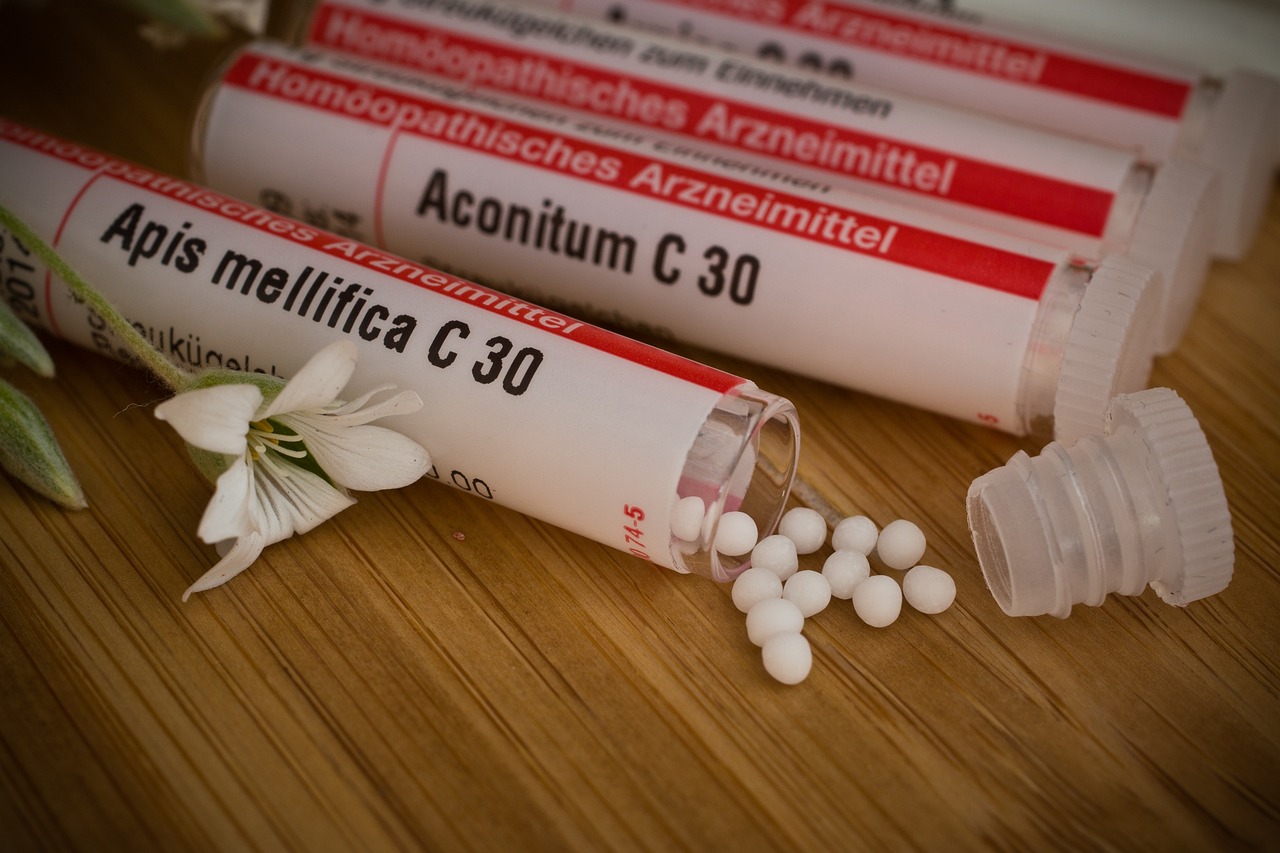
Harm Reduction Strategies
In the ongoing debate about drug policy, have emerged as a beacon of hope, offering a fresh perspective on how society can address drug use without resorting to punitive measures. These strategies prioritize the health and safety of individuals who use drugs, recognizing that criminalization often exacerbates the very problems it aims to solve. By shifting the focus from punishment to prevention and care, harm reduction approaches create an environment where individuals can seek help without fear of legal repercussions.
One of the most compelling aspects of harm reduction is its emphasis on realistic and practical solutions. For instance, needle exchange programs have been implemented in various cities around the world. These programs provide sterile needles to drug users to prevent the spread of infectious diseases such as HIV and hepatitis C. Studies have shown that such initiatives not only reduce disease transmission but also encourage users to engage with healthcare services, opening doors to treatment and recovery. It’s a classic case of meeting people where they are, rather than where we wish they would be.
Moreover, harm reduction strategies often include supervised consumption sites, where individuals can use drugs under the supervision of trained staff. These sites have been shown to reduce overdose deaths and connect users with vital health services. Imagine a community space where people can feel safe, receive medical assistance if needed, and access resources for addiction treatment—all while minimizing the risks associated with drug use. This approach not only saves lives but also fosters a sense of community and support.
Additionally, harm reduction is not just about managing the consequences of drug use; it also involves educating users about safer practices. Education and awareness campaigns can empower individuals to make informed choices, helping them understand the risks associated with various substances and how to mitigate them. For example, providing information about dosages, mixing substances, and recognizing the signs of overdose can be life-saving. This proactive approach contrasts sharply with the fear-based narratives often perpetuated by traditional drug policies.
Critics may argue that harm reduction sends the wrong message about drug use, potentially encouraging experimentation. However, research indicates that these strategies do not increase drug use; rather, they provide a safer pathway for those already using drugs. It's akin to providing a life jacket to someone already swimming in turbulent waters—it's about ensuring safety, not encouraging reckless behavior.
In conclusion, harm reduction strategies represent a compassionate and rational approach to drug policy. By focusing on health, safety, and education, these initiatives not only address the immediate risks associated with drug use but also pave the way for long-term recovery and reintegration into society. As we continue to grapple with the complexities of drug-related issues, embracing harm reduction could be a pivotal step toward a more just and effective approach to drug policy.
- What are harm reduction strategies?
Harm reduction strategies are approaches aimed at minimizing the negative health, social, and economic consequences associated with drug use, focusing on the well-being of individuals rather than punitive measures. - Do harm reduction strategies promote drug use?
No, research shows that harm reduction strategies do not increase drug use; instead, they provide safer options for those who are already using drugs. - How effective are needle exchange programs?
Needle exchange programs have been proven effective in reducing the spread of infectious diseases and encouraging users to seek healthcare services. - What are supervised consumption sites?
Supervised consumption sites are facilities where individuals can use drugs under medical supervision, which helps reduce overdose deaths and connect users to health services.

Decriminalization Efforts
The conversation around drug policy is evolving, and one of the most intriguing shifts is the movement towards decriminalization. This approach, which involves removing criminal penalties for drug use and possession, is gaining traction in various parts of the world. The rationale behind decriminalization is straightforward: instead of treating drug users as criminals, this perspective encourages viewing them as individuals who may need help and support.
Countries like Portugal have taken significant steps in this direction. In 2001, Portugal decriminalized the possession of all drugs, including heroin and cocaine. This bold move was not without its critics; many feared it would lead to increased drug use and addiction rates. However, the results tell a different story. Over the years, Portugal has seen a remarkable decrease in drug-related deaths, HIV infections, and overall substance abuse. The country redirected its focus from punishment to treatment, demonstrating a successful model that challenges traditional views on drug enforcement.
Another compelling example comes from Canada, where several provinces have initiated decriminalization pilot programs. These programs aim to reduce the stigma associated with drug use and provide users with access to health services rather than jail time. The data emerging from these initiatives suggest a positive trend: fewer drug overdoses and an increase in individuals seeking help for their addictions. This approach illustrates how a shift in policy can lead to better health outcomes and a more compassionate societal attitude towards addiction.
However, the path to decriminalization is not without its challenges. Critics often raise concerns about the potential for increased drug use and the societal implications that might follow. Yet, it’s crucial to examine the broader context. Countries that have embraced decriminalization often couple it with comprehensive harm reduction strategies, such as safe consumption sites, needle exchange programs, and mental health services. These measures work synergistically to address the root causes of addiction, demonstrating that a holistic approach can yield far better results than punitive measures alone.
Moreover, the economic implications of decriminalization are noteworthy. A study examining the financial impact of drug enforcement in the United States reveals staggering costs. According to the American Civil Liberties Union, the U.S. spends over $47 billion annually on the War on Drugs. Decriminalizing drug possession could significantly reduce these expenses, allowing governments to reallocate funds towards education, healthcare, and social services. This shift not only makes economic sense but also aligns with a more ethical approach to public health.
In conclusion, the decriminalization of drugs represents a paradigm shift in how societies approach drug use and addiction. By focusing on treatment rather than punishment, countries like Portugal and Canada are paving the way for a more humane and effective drug policy. As we continue to explore these efforts, it’s essential to ask ourselves: Are we ready to embrace change, or will we cling to outdated notions that do more harm than good?
- What is decriminalization? Decriminalization refers to the removal of criminal penalties for drug possession and use, focusing instead on treatment and support.
- What are the benefits of decriminalization? Benefits include reduced drug-related deaths, lower rates of addiction, decreased stigma, and significant cost savings for governments.
- Are there any successful examples of decriminalization? Yes, Portugal and Canada have implemented successful decriminalization policies that have led to improved public health outcomes.
- How does decriminalization affect drug use rates? Evidence suggests that decriminalization does not necessarily lead to increased drug use; instead, it often encourages users to seek help.
Frequently Asked Questions
- What is the War on Drugs?
The War on Drugs refers to a series of government-led initiatives aimed at curbing illegal drug trade and use. It encompasses various policies, law enforcement strategies, and social programs designed to combat drug-related issues. However, its effectiveness and moral implications are hotly debated.
- What are the ethical implications of the War on Drugs?
The ethical implications are vast and complex. Critics argue that it disproportionately affects marginalized communities and often leads to more harm than good. Different ethical frameworks, like utilitarianism and deontology, offer varying perspectives on whether these policies are justifiable or beneficial.
- How does the War on Drugs impact public health?
The War on Drugs has significant public health consequences, including increased addiction rates and the spread of diseases. By criminalizing drug use, many individuals avoid seeking help for fear of legal repercussions, which can exacerbate health crises rather than alleviate them.
- What are the economic costs associated with the War on Drugs?
The financial burden of the War on Drugs is substantial, encompassing costs related to law enforcement, incarceration, and lost productivity. These expenses raise questions about whether resources could be better allocated to treatment and prevention strategies that address the root causes of drug issues.
- How does the War on Drugs relate to social justice?
Social justice issues are central to the discussion around the War on Drugs. The policies often disproportionately target marginalized communities, leading to systemic racial disparities in arrests and sentencing. This raises critical questions about equality and the moral responsibilities of society.
- What are harm reduction strategies?
Harm reduction strategies focus on minimizing the negative consequences associated with drug use rather than enforcing punitive measures. These approaches prioritize public health and aim to provide compassionate care to individuals struggling with addiction, fostering a more ethical response to drug-related issues.
- Are there successful models of decriminalization?
Yes, several countries have implemented successful decriminalization models, which have shown promising results in reducing drug-related harm and improving public health outcomes. These models provide valuable insights into the potential benefits of shifting away from punitive approaches to drug use.









